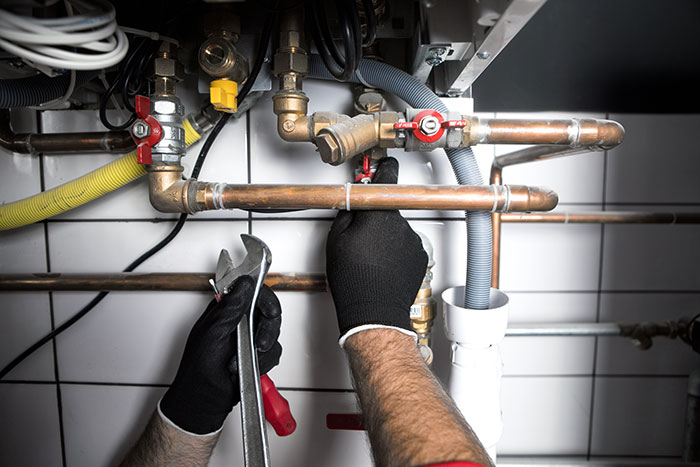If you live in an older home, you undoubtedly know that there are special maintenance considerations involved in owning a longstanding property. Unlike more modern homes, older homes that plumbing systems that were installed many decades ago. Over the years, inevitably causes wear and tear to plumbing systems, which increases the risk of damage. But, in addition to the sheer age of old pipes, plumbing practices were much different in past eras. Now, we have more advanced methods of designing and installing plumbing systems. So, dated pipes can lead to several complications for homeowners.
With that said, many homeowners are quite ready to have their pipes replaced. Replacing old pipes is generally a major home project. Walls and flooring may need to be torn up to access the pipes, creating a significant inconvenience for homeowners. But, whether you’re getting new pipes or are going to continue with your old Denver plumbing system, the team at Drain Terrier is here to help.
Old Pipe Maintenance
If you have old pipes in your home and replacing them isn’t a feasible option, you can take care of them with careful maintenance practices. By taking excellent care of your old pipes, you can avoid catastrophic damage and prolong the need to replace them. However, it’s worth noting that old pipes that are already damaged should likely be replaced regardless – trying to keep them around could cause further damage to your home.
Provide Protection in Extreme Cold
Here in Colorado, we can experience extreme, freezing temperatures in the winter. When this occurs, there’s a risk of the pipes freezing. When pipes freeze, they may burst, potentially flooding your home.
The good news is that there are ways to protect your home against frozen pipes, even in the bitter cold. Here’s how:
- Make sure that the heating in your home remains on.
Even if you’re heading out on vacation in the winter, you should set your thermostat so that the temperature of your home doesn’t drop below 50℉. This will prevent the pipes from freezing.
- Run the hot water periodically.
Running the hot water out of every tap and faucet in your home can help prevent frozen pipes. Keeping the hot water running can defrost the pipes if they’ve already frozen.
- Keep the faucet at a drip.
If your pipes are at risk of freezing over, keeping them dripping can keep pressure from building up and potentially causing a pipe burst.
- Get your pipes insulated.
Insulating your pipes will prevent heat loss that can contribute to frozen pipes.
Avoid Harsh Drain Cleaners
Harsh drain cleaners can speed up the deterioration of older pipes. Unfortunately, older pipes are also often more likely to clog, which can make it tempting to reach for the chemical cleaners. While these drain cleaners may seem more convenient now, however, they could simply cause corrosion and damage.
For minor clogs of old pipes, a good bet may be gentler DIY drain cleaners. Using baking soda and vinegar, for example, can effectively clear out some minor drain clogs without causing deterioration like harsher chemical cleaners.
If you’re experiencing a major drain clog with older pipes, calling in your Denver plumbing team is your best bet. Experienced plumbers can unclog your pipes without causing damage. With a drain snake or other specialized equipment, your plumbing team can gently remove a clog and preserve the condition of your older pipes.
Keep An Eye Out For Signs of Plumbing Issues
One of the best ways to avoid a plumbing disaster with old pipes is simply to stay aware of warning signs. By identifying one of these signs and promptly contacting your Denver plumbing experts for a replacement, you can get the problem addressed before it leads to catastrophe.
Signs of a plumbing issue with old pipes include:
- Water stains on walls and/or ceilings
- Mold development on walls and/or ceilings
- Water running orange or yellow in color after not using the tap for a period
- Leakage from pipes beneath kitchen and bathroom sinks

